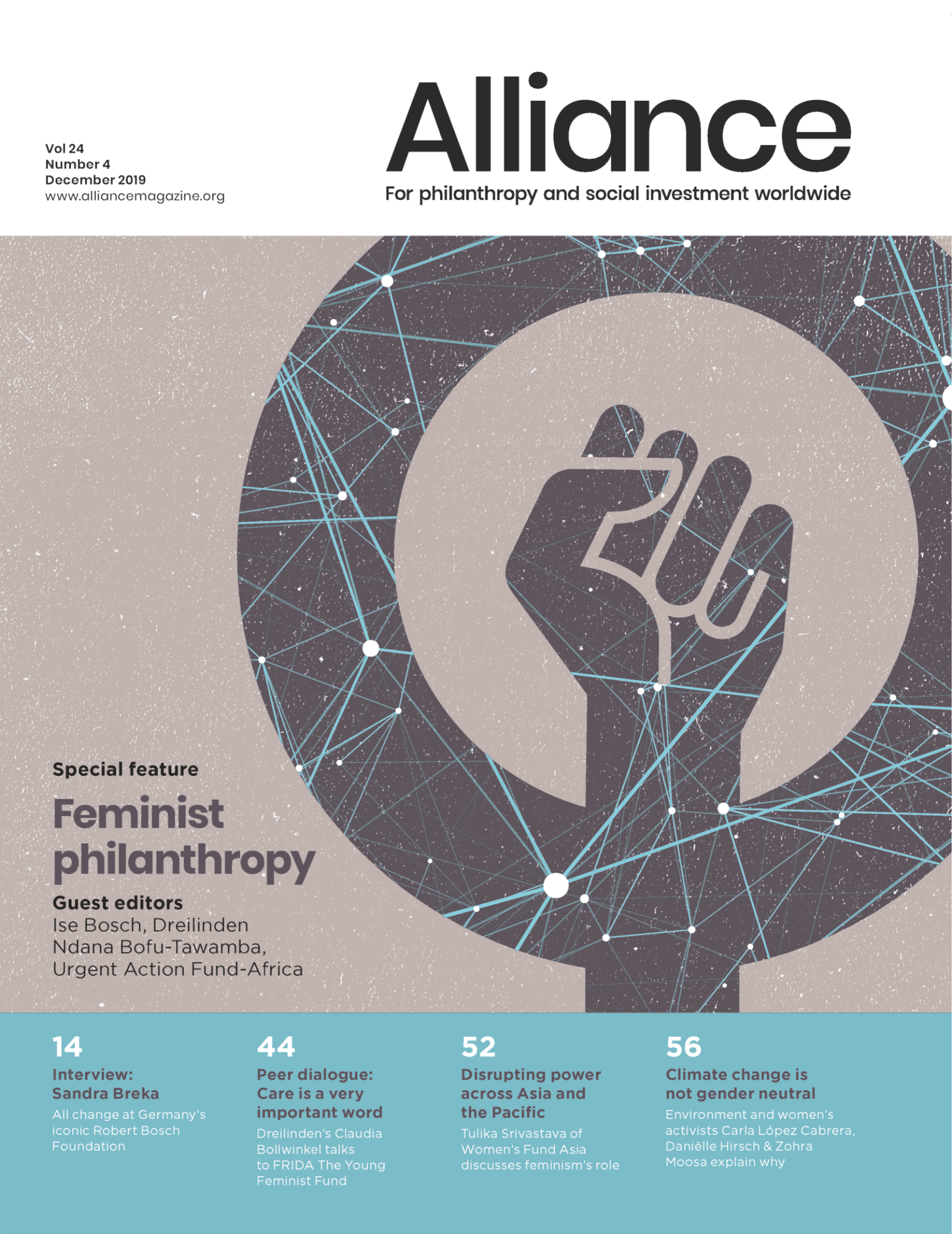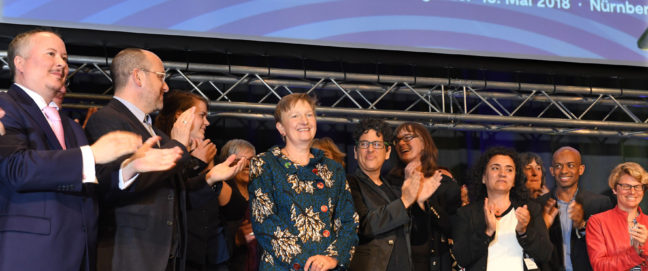A feminist approach rooted in local communities can provide a powerful source of protecting the environment and achieving gender justice
In mid-2016, the Canadian company Orezone Gold Corporation arrived in Bomboré, a town in the Ganzourgou province of Burkina Faso, to explore the area for potential gold mining. Since its arrival, the local community has resisted the mining project, as it would affect around 700 hectares of land, destroy 75,000 trees and force the relocation of 600 families to land that currently is infertile and non-arable. Furthermore, the project has already forced 3,500 people to cease artisanal mining, a major source of income for local families.
Women’s leadership has been key to the local resistance in Bomboré. Through their own enquiries and with the support of Organisation pour le Renforcement des Capacités de Développement (ORCADE), local women became convinced that they did not want a mine. So they started to organise for changes. The women have achieved a short-term victory as the company is now offering them the same financial compensation as the men in the community, given that their loss of livelihoods hadn’t previously been recognised. However, aware that this financial support is not enough, the women of Bomboré are now demanding more long-term change to ensure they have fertile land to live and work on.
They struggle to balance their own ideas with the knowledge, experiences, interests and demands of the different members of the local communities they want to work with.
This scenario is not surprising, nor is it unique. Corporations in extractive industries, working with development banks and national governments, have been pushing large-scale infrastructure and agro-industry projects for decades. The impacts of these mega-projects invariably have damaging consequences for local economies, livelihoods and the environment, and they often spark local opposition, just as they did in Bomboré.
To respond to the negative impacts of these types of projects, local communities often receive support from international not-for-profit and philanthropic organisations. While they come into the community with the aim of providing support, they struggle to balance their own ideas with the knowledge, experiences, interests and demands of the different members of the local communities they want to work with.
GAGGA’s deepest ambition is to show that a feminist approach to tackling environmental challenges is key to realising a democratic transition to just societies that respects planetary boundaries.
The Global Alliance for Green and Gender Action (GAGGA) has been experimenting with a new approach. A multi-actor network active from local to international level, GAGGA is a political alliance that acts in solidarity with local movements fighting for gender and environmental justice across the globe. The network includes local activists, groups and collectives, often women-led, and supports their political agendas related to pressing environmental issues, including environmental sustainability, disaster mitigation and climate change.
GAGGA’s deepest ambition is to show that a feminist approach to tackling environmental challenges, whether at the local or global level, is key to realising a democratic transition to just societies that respects planetary boundaries. GAGGA sets out to strategically connect the women’s movements and environmental justice movements to bring forward women-led visions for change.

Visit to a mining site during a WAMA skills-share programme in Palawan, the Philippines. Credit: WAMA
For this to work, GAGGA has developed a flexible and decentralised approach to funding, partnering with an array of actors, including national, regional and global women’s funds, environmental justice funds and NGOs. It reaches more than 360 groups and collectives working to secure women’s rights to environmental justice across 30 countries.
This has led to amazing results. For example, in Guatemala, the women of the Ixquisis community have been able to successfully submit a complaint to the Inter-American Development Bank on its lack of compliance with its gender policy in the development of two hydro-power dams in their territory. In Asia, organisations from Cambodia, India, Indonesia, Mongolia and the Philippines have formed the Women in Action on Mining in Asia (WAMA) coalition. This provides skills-share workshops for women from affected communities at national and regional levels to further understand the gendered impacts of mining, deconstruct the economics of mining and build a strong regional evidence-based platform for women’s demands to the mining sector. Through this coalition, the group has been able to effectively engage in the United Nations Forum on Business and Human Rights.
Since 2016, the GAGGA network has been able to show that when local communities are listened to, profound systemic change will ensue, just as the women in Burkina Faso succeeded in getting an international mining giant to start changing its ways.
Carla López Cabrera is executive director, Fondo Centroamericano de Mujeres.
Email: carla@fcmujeres.org
Twitter: @fcmujeres
Daniëlle Hirsch is director, Both ENDS.
Email: D.Hirsch@bothends.org
Twitter: @Danielle_H_BE
Zohra Moosa is executive director, Mama Cash.
Email: z.moosa@mamacash.org
Twitter: @zohramoosa







Comments (0)